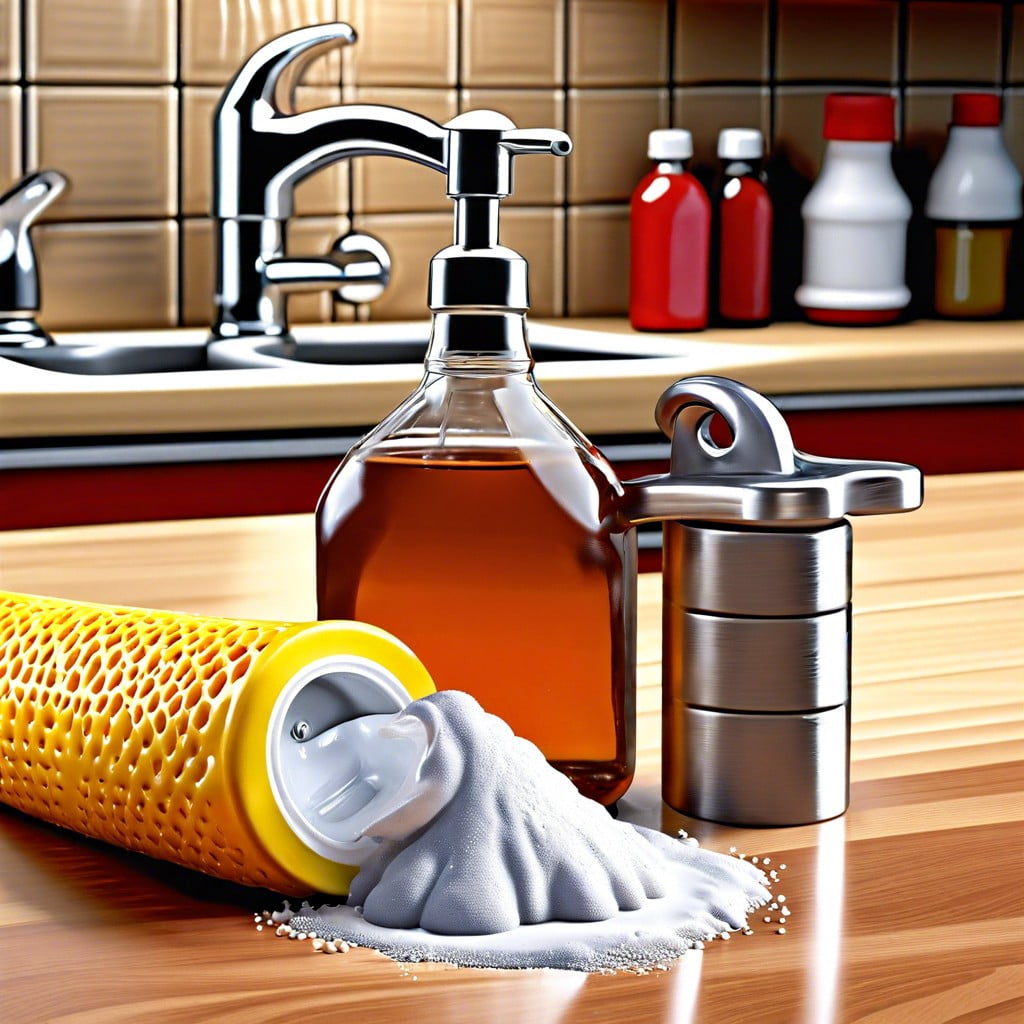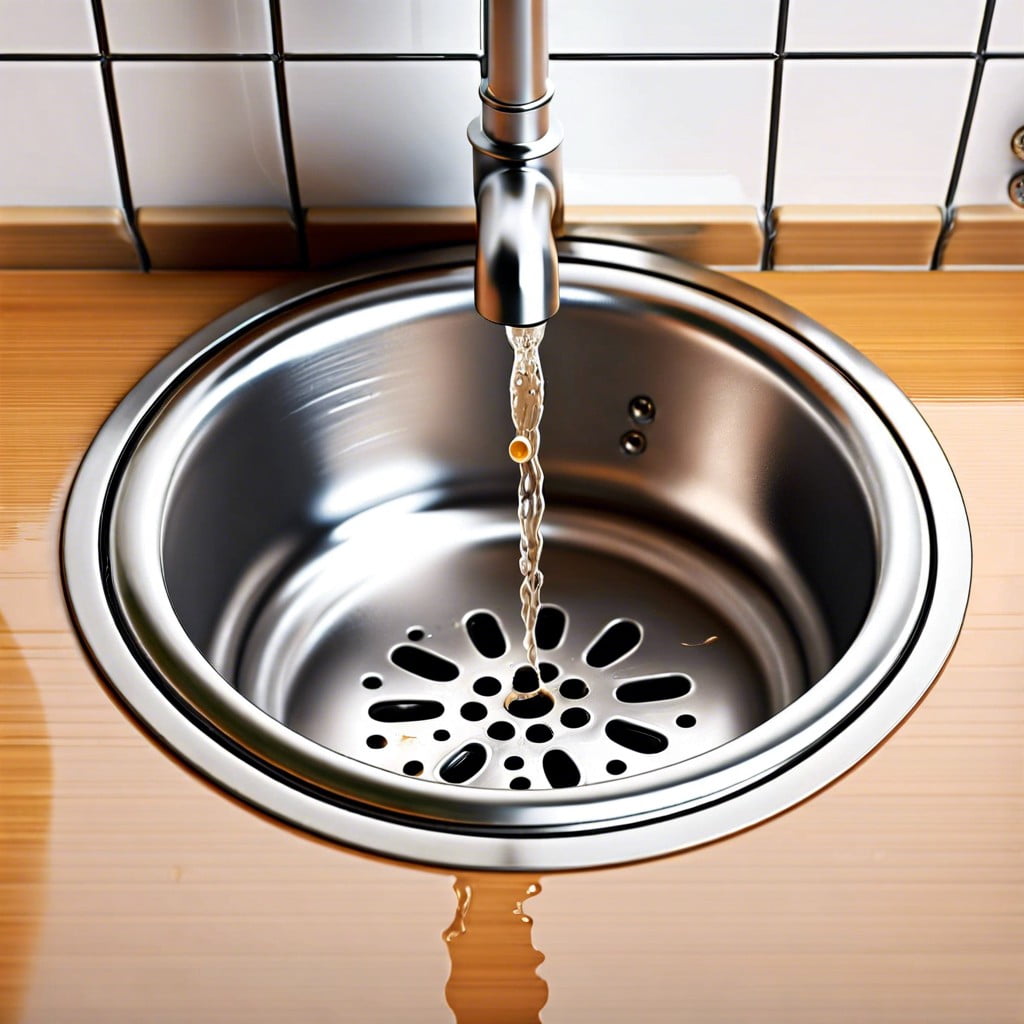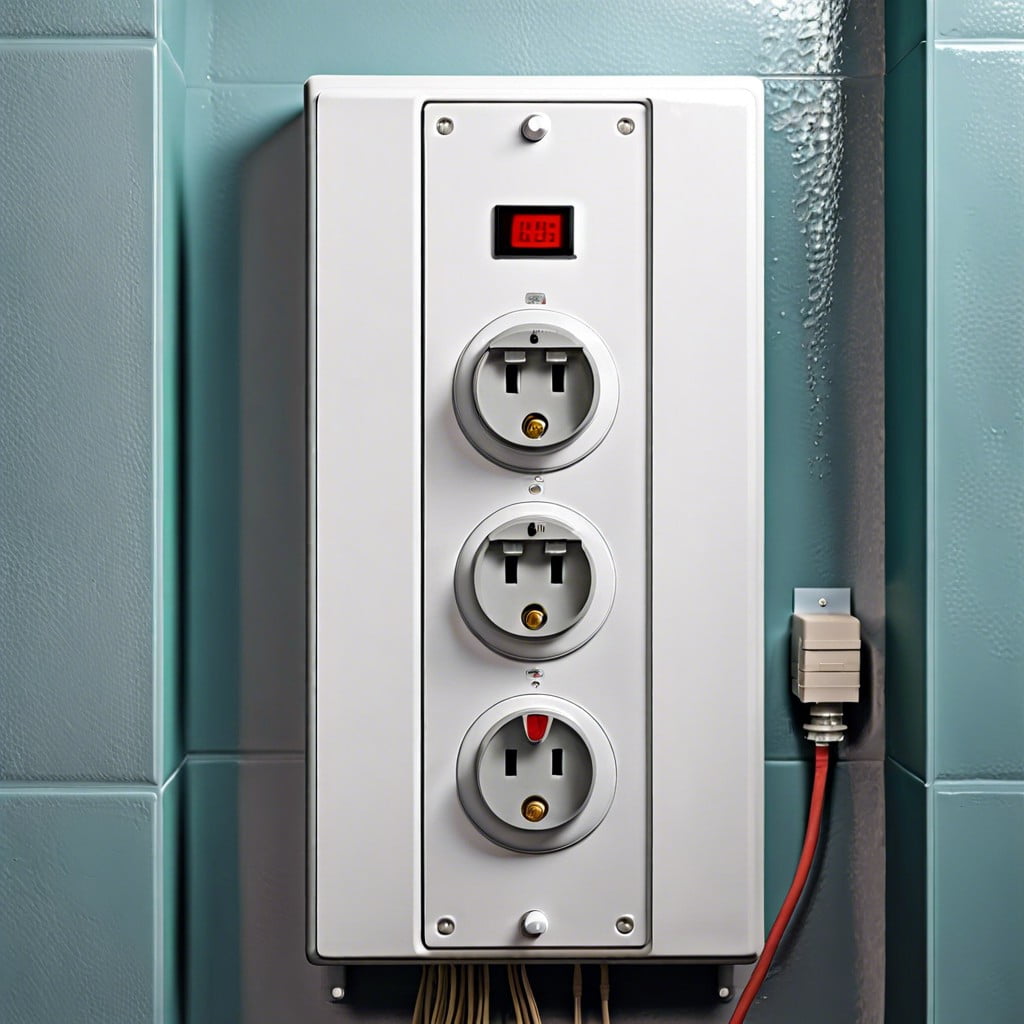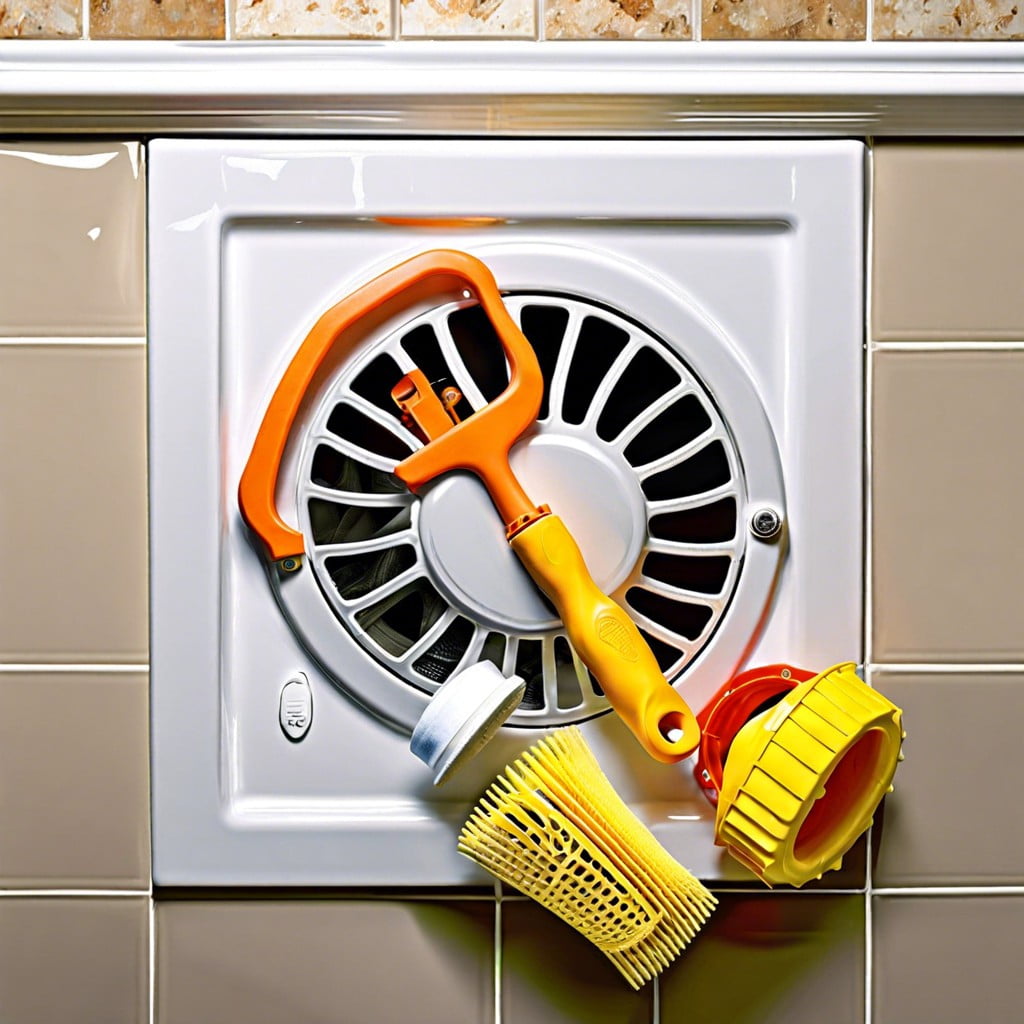Last updated on
Learn practical solutions to eliminate odors from a stinky drain effectively.
Key takeaways:
- Bacteria, mold, food residue, and more can cause stinky drains.
- Vinegar and baking soda can effectively eliminate drain odors.
- Clean aerators regularly to prevent bacteria and debris buildup.
- Maintain garbage disposals with ice, citrus peels, and baking soda-vinegar mixture.
- Call a professional if DIY attempts don’t resolve persistent odors.
What Causes a Stinky Drain?
Bacteria and Mold: Warm, damp conditions are ideal for bacteria and mold growth. This biological party contributes to the foul odor.
Food Residue: Food particles that don’t make it all the way through your kitchen sink drain can decay and start to smell.
Hair and Soap Scum: In bathrooms, hair and soap buildup can create smelly blockages.
Dry P-Trap: The P-trap contains water to block sewer gases from rising up. If it dries out, nothing stops those gases from wafting through your drains.
Sewer Line Problems: Occasionally, the issue is more serious, such as a broken sewer line, allowing sewer smell to seep through.
Foreign Objects: Anything that shouldn’t be down there—cotton swabs, floss, etc.—can start to smell as it decomposes.
Understanding these causes is crucial in effectively addressing and preventing stinky drains.
Cleaning a Stinky Drain With Vinegar and Baking Soda
The combination of vinegar and baking soda is a tried-and-true weapon against drain odor, leveraging the power of natural chemical reactions. Baking soda, a mild alkali, works to dissolve dirt and grime, while vinegar, a natural acid, reacts with baking soda to produce a vigorous fizzing action that can break up drain gunk. This potent yet safe mix can dislodge smelly residues without the environmental toll of harsher chemicals.
To tackle the offender, start by pouring a pot of boiling water down the drain to loosen any buildup. Follow up with a cup of baking soda, ensuring it coats the sides of the pipe. Add one cup of white vinegar and plug the drain immediately to contain the fizzing within the pipes, augmenting the cleaning action. After about an hour, flush the drain with another round of hot water to wash away the loosened debris. This method is not only effective but also eco-friendly, avoiding the introduction of toxic substances into your home. Try incorporating this routine monthly to prevent smelly drains rather than treating them.
How to Clean Stinky Drain Aerators
A common oversight in tackling foul odors is the aerator—the small fixture at the faucet’s tip, which can harbor bacteria and debris.
Unscrew it carefully using a pair of pliers wrapped in a cloth to prevent scratching.
Soak the disassembled parts in white vinegar for an hour to dissolve mineral deposits and eradicate odor-causing bacteria.
Thoroughly rinse with water before reassembly.
Additionally, ensure the screen is free of grit, as blockages can lead to water stagnation, a precursor to unpleasant smells.
Regular maintenance of aerators is a simple, yet effective step in maintaining a fresh bathroom environment.
How to Clean Garbage Disposals
Regular maintenance can prevent odor buildup in your garbage disposal. Start by running cold water through the disposal for a minute to solidify any remaining food bits. Follow this by throwing in a few ice cubes and a cup of rock salt, then run the disposal. This concoction acts like a scrub, dislodging stuck particles without the need for harsh chemicals.
For a refreshing scent, grinding citrus peels is a natural deodorizer. Lemons or oranges work wonders. However, cut them into small pieces to prevent clogging. Citrus acid also helps cut through grease and slime.
For deeper cleaning, mix a half cup of baking soda with a cup of white vinegar. Pour it down the disposal and let it foam for ten minutes before rinsing with boiling water. This fizzing action clears out grime and neutralizes odors effectively.
Avoid putting expandable foods like pasta and rice or fibrous materials like banana peels in the disposal, as they can cause stubborn clogs and unwanted smells. Remember, your garbage disposal isn’t a substitute for your trash bin. Use it wisely.
When to Call a Professional
Persistent odors after repeated cleaning attempts could signal deeper plumbing issues—an indication that it’s time to dial a plumber. Professionals are equipped to handle obstructions or damage beyond a homeowner’s reach or skill set.
If water fails to drain or gurgles back up, the problem might extend to the sewer line, a job unwise to tackle without the right tools and expertise. The presence of sewer gas, which is not just unpleasant but potentially hazardous, requires immediate attention.
Err on the side of caution; excessive DIY enthusiasm can lead to further damage and unnecessary costs in the long run. Trust your nose and gut: if a scent refuses to dissipate, it’s worth the call.
Recap




